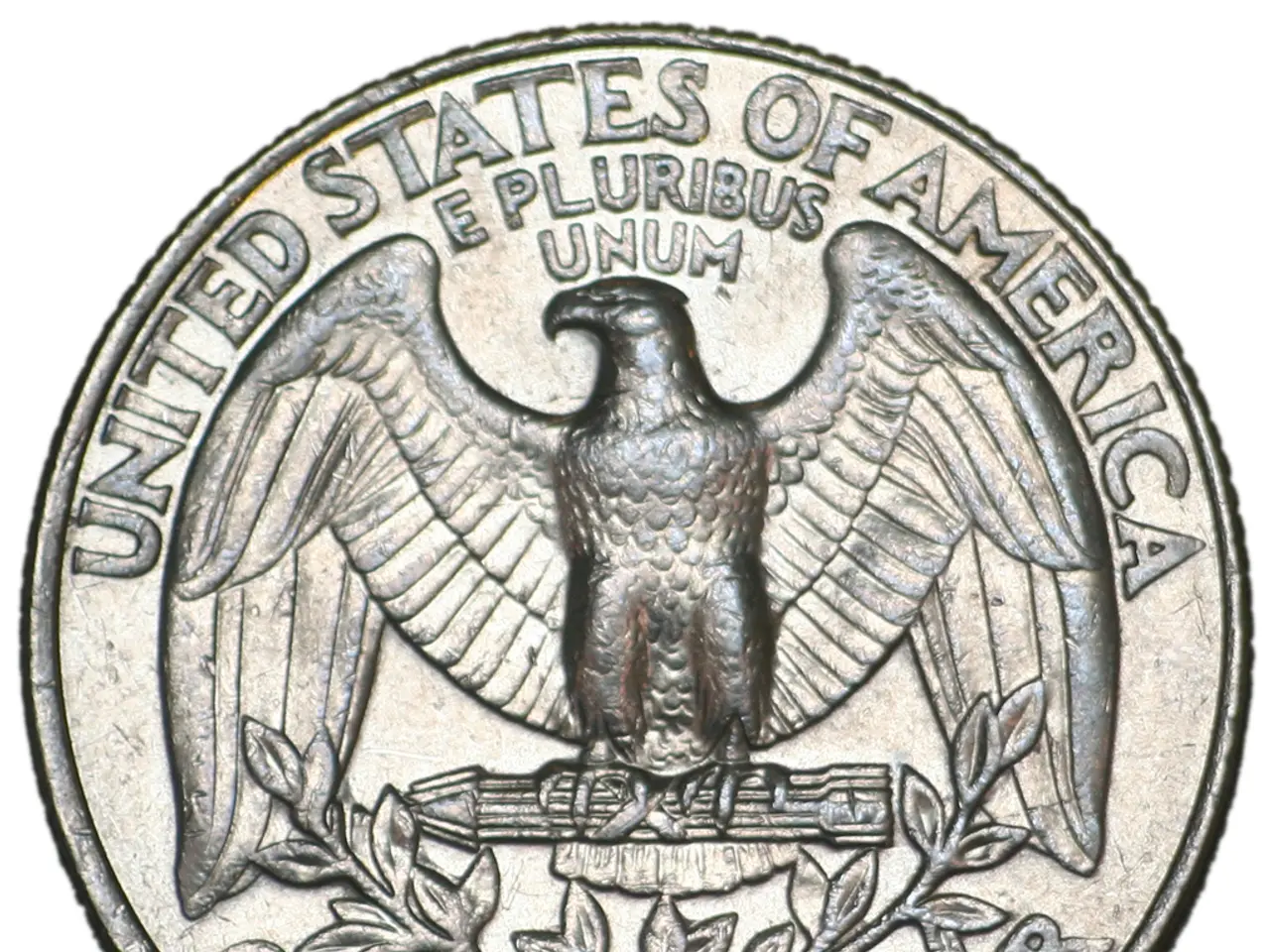Contemplates Launch of Stablecoin and Cryptocurrency Services by Santander
Banco Santander Joins the Stablecoin Race
Banco Santander, one of the world's largest banks, is set to join the growing stablecoin market. The Spanish bank's strategic move signals a strong interest in integrating stablecoins into its services, following a broader trend towards digital assets and blockchain technology.
The bank's plans to issue stablecoins for its clients were reported as part of its broader digital asset ambitions [3][5]. This development comes at a time when the stablecoin market is experiencing rapid growth and regulatory clarity, particularly in the U.S., where a major stablecoin regulatory bill was passed in mid-2025. The legislation mandates compliance with anti-money laundering laws and reserve backing for stablecoin issuers, providing a more secure framework for their use in payments and other financial activities [4].
The stablecoin market has seen explosive growth, reaching a market capitalization of approximately $266 billion by mid-2025. This growth is largely driven by real-world use cases such as payments and remittances, the type of applications that banks like Santander are seeking to integrate into their offerings.
Santander's foray into stablecoins aligns with its history of investing in blockchain technology. The bank has been an early investor in Ripple and has previously used Ripple's permissioned network for payments, although not XRP [6]. It has also embraced permissionless blockchain activities, such as issuing a digital bond on Ethereum in 2019 [7].
The bank's digital arm, Openbank, has applied for a European cryptocurrency license, further demonstrating its commitment to the digital asset space [1]. Santander is also part of the Fnality wholesale blockchain-based settlement network, alongside 20 institutional backers and early adopters like Lloyds Bank and UBS [8].
If Santander confirms its plans, it will join a growing cohort of systemically important banks advancing stablecoin-related initiatives. Deutsche Bank is a partner in ALLUnity, a stablecoin initiative planning to launch this year, pending regulatory approval. Societe Generale's FORGE subsidiary launched the EURCV euro coin in 2023, and Standard Chartered is part of a joint venture in Hong Kong that intends to introduce a stablecoin [9].
In the competitive stablecoin landscape, Santander's specific projects have not been detailed. However, it is clear that major financial institutions and corporate entities globally are increasingly exploring stablecoins to enhance payment systems, driven by regulatory frameworks and market demand.
References: 1. Banco Santander's digital bank, Openbank, applies for a European cryptocurrency license 2. Stablecoin Market Capitalization Reaches $266 Billion by Mid-2025 3. Banco Santander's broader move toward embracing digital assets and blockchain technology 4. U.S. Passes Major Stablecoin Regulatory Bill 5. Santander's interest in integrating stablecoins into its services 6. Santander's history of investing in blockchain technology, including being an early investor in Ripple 7. Santander has embraced permissionless blockchain activities, such as issuing a digital bond on Ethereum in 2019 8. Santander is part of the Fnality wholesale blockchain-based settlement network 9. Competitor initiatives in the stablecoin market
- The growing stablecoin market, with a market capitalization of roughly $266 billion, is witnessing the participation of Banco Santander, one of the world's largest banks.
- As part of its broader digital asset ambitions, Banco Santander is planning to issue stablecoins for its clients, aligning with a broader trend towards digital assets and blockchain technology.
- Regulatory clarity, particularly in the U.S., where a major stablecoin regulatory bill was passed in mid-2025, is facilitating the growth of the stablecoin market.
- Banco Santander has been an early investor in blockchain technology, as evidenced by its previous investments in Ripple and its issuance of a digital bond on Ethereum in 2019.
- Santander's digital arm, Openbank, has applied for a European cryptocurrency license, demonstrating its continued commitment to the digital asset space.
- Banco Santander is part of the Fnality wholesale blockchain-based settlement network, joining a cohort of systemically important banks advancing stablecoin-related initiatives.




